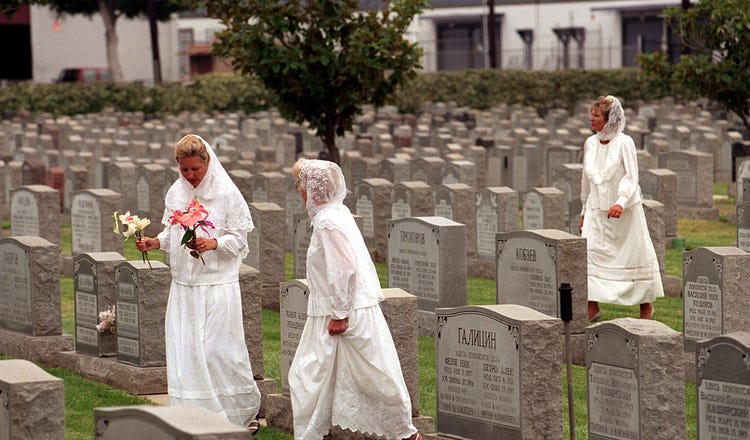
Welcome back to Douglas Murray’s Sunday column, Things Worth Remembering, where he presents passages from great poets he has committed to memory—and explains why you should, too. And if you want to listen to Douglas read this week’s work, the song from William Shakespeare’s tragedy “Cymbeline,” click below.
Satire is like journalism: it works on just the one level, which is why, like journalists, few satirists last the ages. To make something work on two levels requires something more than satire. And to make a line evoke two contradictory feelings at once requires a genius that comes along very rarely indeed.
As I said at the outset, Shakespeare will by necessity have to crop up a few times in this series, and if there is a reason it is simply that, even today, his achievement remains too great to take in. If you think that’s an overstatement, let me prove it in short order. Shakespeare gave us the greatest comedies, histories, tragedies, and poems in English. He gave us a whole flowering of new language and a depth of insight into ourselves unsurpassed by any other writer in history. Yet how many of the plays do you know?
Many people will have seen Hamlet or Macbeth. How many have read or seen The Winter’s Tale, Coriolanus, or Troilus and Cressida? I don’t mind admitting that there are still plays of his that I have never read, let alone seen. And there is something extraordinary about that: a writer whose achievement is so great most people accept he is the greatest, yet do not bother to explore further. Why is that?
That question is one reason why the less-famous plays are some of the ones that interest me the most. When I was a schoolboy, I was fortunate enough to see a production of Troilus and Cressida—which is rarely put on and has the added complication of not really being about Troilus or Cressida. Shortly after seeing it, I went to a talk by the great Shakespeare scholar John Barton, who, among other things, coached the actors at the Royal Shakespeare Company on how to speak the speech. He had worked with Peggy Ashcroft, Judi Dench, Ian McKellen—the lot. He was also married to the great Shakespeare scholar Anne Barton. I would have loved to have heard the conversation at their breakfast table.
Anyhow, at the end of his talk, I asked Barton if I could walk him to his car. We talked about Shakespeare, of course, and while trying to walk as slowly as possible I told him that I had recently seen Troilus and Cressida. He asked me my views of the production in the way that decent, older people do when they know that their task is, in part, to cultivate—to draw out of younger people insights that they themselves already know. I confessed I had found the play tricky. We talked about why that was, about everything going on in the play that seems wrong, including the sidelining—and slight tedium—of the title characters.
Then, suddenly, Barton said the play included his favorite lines in all of Shakespeare. Standing beside his battered old car, he did them by heart.


